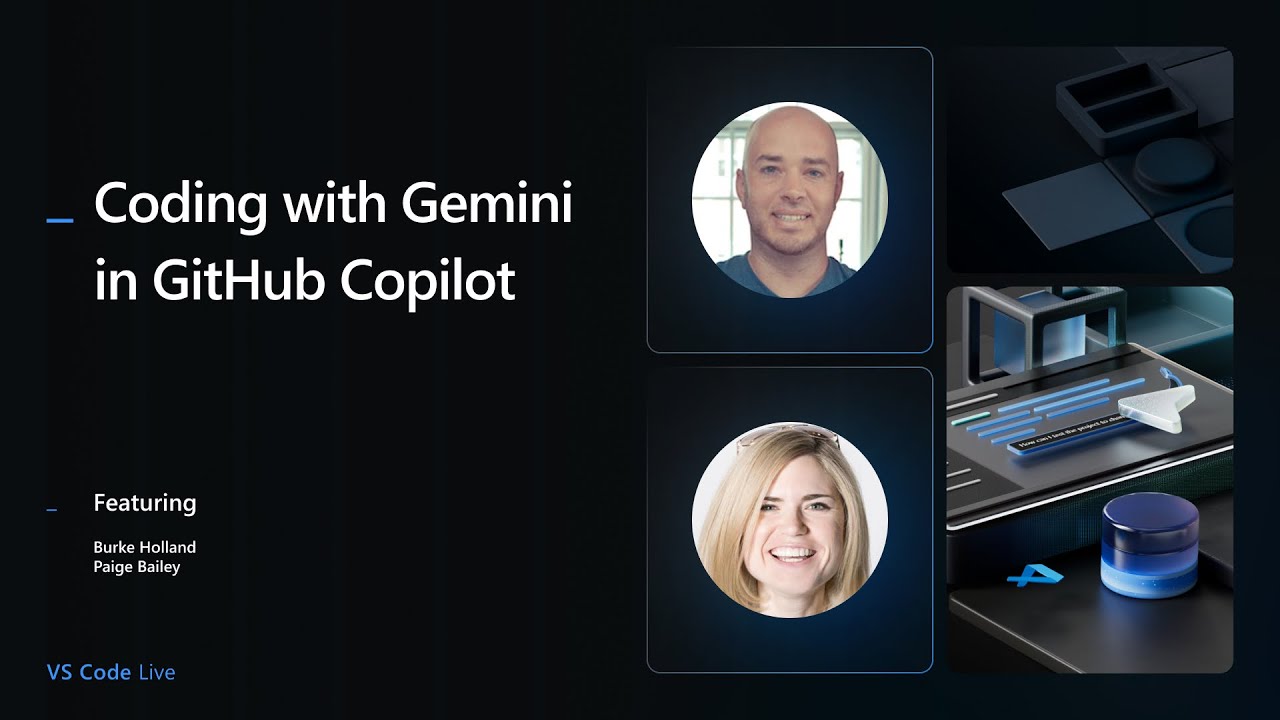The video discusses the integration of Gemini 2.5 models into GitHub Copilot and Visual Studio Code, highlighting their multimodal capabilities, such as code generation, image editing, and understanding multiple media types. It emphasizes the rapid evolution of AI tools, practical usage tips, and encourages developers to experiment with these new features to enhance their workflows.
The video features a lively discussion about the latest advancements in AI-powered coding tools, focusing on the integration of Gemini models within GitHub Copilot and Visual Studio Code. Paige Bailey from the Gemini team, Harold from the VS Code team, and the host introduce the new Gemini 2.5 models, highlighting their capabilities and recent release. They emphasize the rapid pace of AI development, noting how models and features evolve quickly, often within days or weeks, making it essential for developers to stay updated on the latest tools.
Paige provides an overview of the Gemini models, particularly the 20, 25 Flash, and 25 Pro variants. She explains that these models are multimodal, capable of understanding and generating not just text and code but also images, audio, and video. She demonstrates their ability to edit images via natural language commands, generate code snippets, and support multiple languages and voices. The models’ versatility is showcased through live demos, such as analyzing code, explaining components, and modifying images, illustrating their potential to enhance software development workflows.
The discussion then shifts to practical usage within VS Code and Copilot, including how to select different Gemini models, switch between Flash and Pro versions, and utilize agent mode for more complex tasks. The hosts explore features like context window management, file selection, and how the models can intelligently gather relevant code snippets and project information. They also touch on the importance of controlling model behavior, such as pausing or guiding responses, to maintain developer oversight and prevent the models from going off track during complex tasks.
A significant portion of the conversation is dedicated to the technical and strategic aspects of deploying these models, including cost considerations, rate limits, and the importance of understanding token usage. They discuss how Gemini models are cost-effective compared to other options, and how developers can optimize their workflows by choosing appropriate models based on speed, quality, and budget. The hosts also highlight the role of structured protocols like MCP (Model Control Protocol) for integrating external tools and APIs, enabling AI agents to interact with services like GitHub, Spotify, and payment platforms securely and reliably.
In conclusion, the video encourages viewers to experiment with the new Gemini features available today, especially for paid Copilot users and those with access to AI Studio. They emphasize that many of these capabilities, including model switching, image editing, and agent mode, are accessible immediately, inviting developers to explore and provide feedback. The hosts express excitement about the rapid pace of AI innovation, promising to revisit these topics soon as new updates and features continue to emerge, underscoring the dynamic future of AI-assisted software development.
